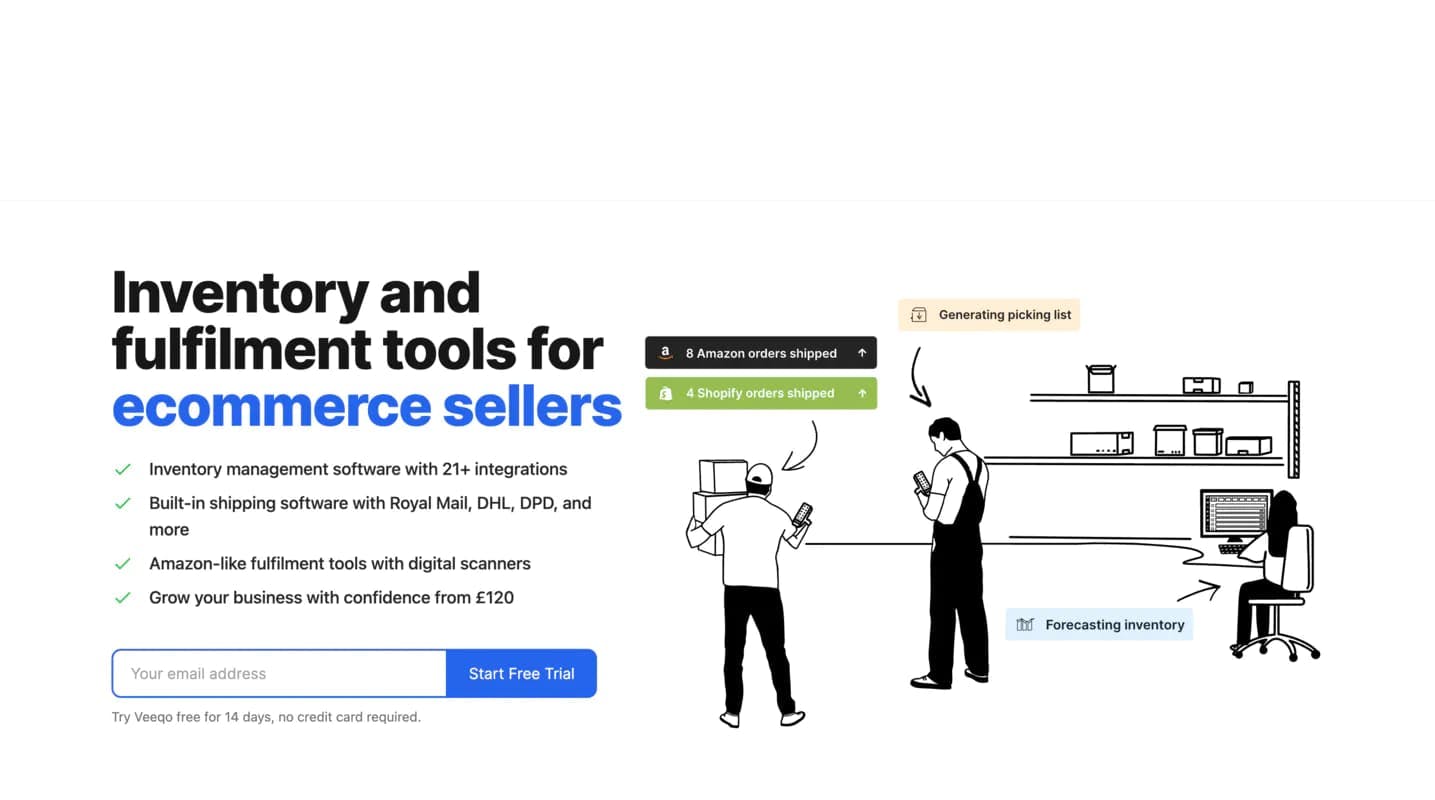Veeqo is an inventory and fulfilment platform bringing together e-commerce merchants and various service providers. Through Veeqo, merchants have access to features like inventory and order management, reporting and forecasting, shipping and warehousing, and digitalization, to name a few.
They do this by directly integrating with the world’s most popular retail applications, including e-commerce platforms, marketplaces, shipping carriers, POS systems, and more.
Recently, we hopped on a call with Calum McClune, Technical Team Lead at Veeqo, to understand the decision process when selecting service providers and, ultimately – what made them opt for PDF Generator API instead of building the solution themselves.
Calum, what are the criteria when selecting an external service provider to integrate into your everyday workflow and process?
We look at various factors when choosing a solution provider – the more crucial being security, price and scalability.
What is your overall philosophy when outsourcing services – many of our clients outsource services purely for the reason that those are not within the scope of their core business? What about Veeqo – what types of services have you decided to outsource?
Some of the components of our product, authentication being a good example, we develop in-house as those carry a substantial security risk. However, low-risk services such as that provided by PDF Generator API or email templating, we tend to outsource. Another good example is our Quickbooks integration which is provided via a third party.
We also have a bunch of tools we use internally, for example, for monitoring user engagement or analytics. We utilize these tools to avoid developing them ourselves. I guess you could say that we try to outsource services that are not business-critical. But we also buy services in areas that we are perhaps exploring with the future in mind but don’t yet want to commit any resources to.
Once you have made the decision to integrate a third-party solution into your product – whose desk does that land on – who will become the “product owner” for that integration? Who makes sure no product updates are missed, and everything works as it should, on a continuous basis?
We mostly use email notification services whenever they are available. The notifications land in our developers shared email box specific for the team, which owns that integration. So ideally – none of those should be missed. The developers will then pass that information on to the product manager and tech lead, who will make sure necessary changes are implemented.
There are, of course, cases where the amount of work needed to keep us up-to-date with the integration is just too much for us, and that is when we usually consider changing service providers.

Do you use any risk assessment methodologies to avoid falling into a vendor trap?
I guess the main question we ask ourselves is how much do we rely on that specific third party. If they went out of business tomorrow – how much would that damage us as a company. That is a risk we assess constantly. The issue comes up more often when the service provider’s API changes or when we run into bugs or issues.
Considering that Veeqo was one of our first customers on the platform six years ago – could you give us some insight into how you currently utilize PDF Generator API in your service? What has been your experience so far, and how does PDF Generator API contribute to your business?
The reason we chose PDF Generator in the first place was because of the template editor. Building our own would have wasted our development time, considering it is not a core functionality for us. We didn’t think it would be worth the investment to develop this functionality in-house.
In addition to the template editor, your service also provides the final output in the form of a PDF, which is convenient. The WYSIWYG (what you see is what you get) editor has become even more important for us, as we have recently adopted a free trial model – and instead of setting up templates for our customers, we give them the option of doing it themselves – whichever way they want. That is one of the main ways your product provides added value to our customers.
Would you have any insight into the integration process – how long did it take for Veeqo to integrate PDF Generator API, and what could be changed in the process?
The integration was simple, and the API documentation played a large role in that. The clarity of the documentation is also one of the deciding factors when we procure third-party solutions. We obviously go through the potential partner’s documentation before making any final decisions, and this is where PDF Generator API stood out.
What are the biggest challenges in managing a large number of partners and integrations – with different e-commerce platforms, shipping providers, etc.?
I guess one of the biggest hurdles is managing updates and making sure we keep up with them constantly. This is a non-stop exercise for us – there is always a team somewhere in the company that is working on updates. Consistency is also something that we value in PDF Generator API – we have not had to make too many changes on our side over the years.
How do you handle API deprecations?
Each team is responsible for integrations in their domain and need to make sure that they have up to date information about any API changes or deprecations in third-party services. If we need to deprecate APIs or services in our own application then we ask customers to upgrade if they want to keep using specific functionality.
What are the biggest challenges?
Make sure that the business-critical functionalities are always working and perform as expected. When customers synchronize large product quantities or need to print packing slips for hundreds of products then they don’t want to wait 30 minutes to proceed with a task.
Any feedback for us?
We have used PDF Generator API for over 5 years and our experience has been very positive. There have not been any long interruptions in the service and the support replies very quickly. One thing that could be improved is the editor user experience, sometimes it is hard to align all the components.
As you can see, PDF Generator API is truly a flexible product that adapts to the needs and requirements of its customers, regardless of the sector – independent of whether it is implemented on top of an existing stack or used as a building block for something entirely new. We hope these case studies will help anyone interested in ways to utilize PDF Generator API to further their own business to gain insights, examples and best practice in making the most out of the tool.



